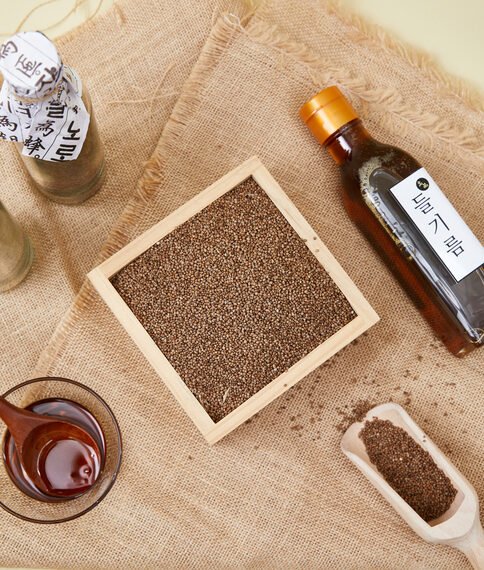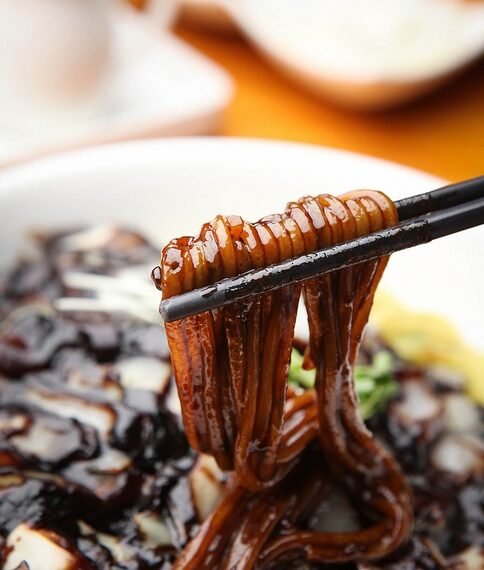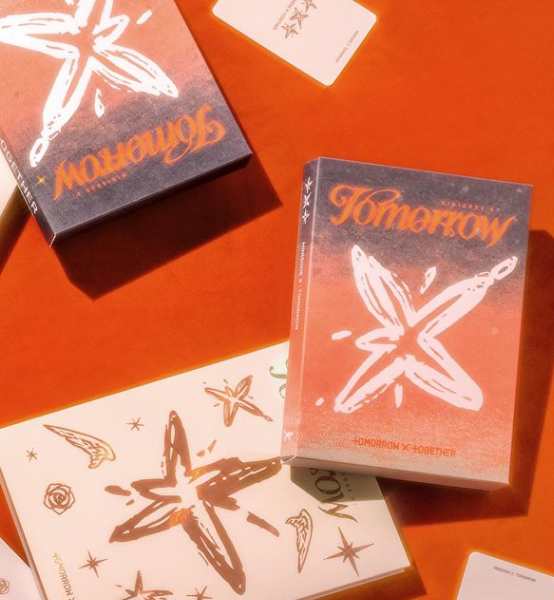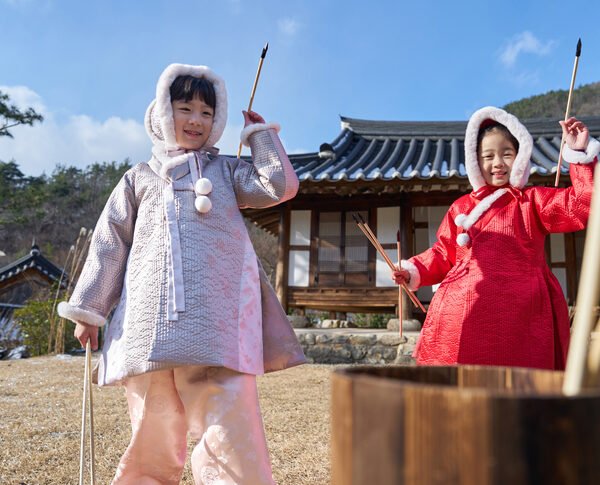If you’ve ever enjoyed a juicy steak with a glass of red wine, you may be tempted to assume that this classic pairing cannot be replaced. However, there is a lesser-known alternative that is gaining popularity among food and beverage enthusiasts – Korean soju. Soju, a type of traditional Korean alcohol, has long been a staple in Korean cuisine. It comes in various flavors, from floral to peppery to piney, offering a wide range of options to suit different palates. Master Sommelier Kyungmoon Kim, an expert in the art of pairing beverages with food, suggests that soju is the perfect companion to Korean dishes. Not only does it pair beautifully with beef dishes like galbi (short ribs), but it also lends itself well to creating delicious cocktails when mixed with sherry, vermouth, or citrus flavors. For those looking to explore the world of soju, Kim recommends trying different types such as Won Soju, Seoul Night Plum Soju, Damsoul Pine Soju, and Samhae Soju. To truly indulge yourself, why not give the Sol Negroni a try? Made with Damsoul Pine Soju, Yangchon Chungju, Campari, and Omija Syrup, it promises to be a delightful and refreshing experience. Next time you’re enjoying a beef dish, consider swapping out the red wine for a bottle of soju and embark on a fascinating culinary adventure.

The popularity of pairing beef with red wine
When it comes to indulging in a juicy beef dish, there’s no denying that many people reach for a glass of red wine to accompany it. The combination of beef and red wine has been a classic pairing for centuries, and for good reason – they complement each other perfectly.
Why beef and red wine complement each other
Beef, with its rich, savory flavors, pairs beautifully with red wine, which often has a bold and robust profile. The tannins in red wine help to cut through the richness of the beef, while the acidity helps to cleanse the palate after each bite. This delightful contrast creates a harmonious balance, enhancing the overall dining experience.
The traditional pairing of beef and red wine
The tradition of pairing beef with red wine can be traced back to the culinary customs of European countries such as France and Italy. In these regions, where beef is a staple protein, red wine has long been considered the ideal accompaniment. Whether it’s a tender steak, a succulent roast, or a flavorful stew, a glass of red wine elevates the flavors and brings out the best in beef.
The common flavors in beef and red wine
One of the reasons why beef and red wine go so well together is because they share similar flavor profiles. Both beef and red wine often exhibit notes of blackberry, plum, and black currant. Additionally, they can both display hints of spices such as black pepper, cloves, and thyme. These overlapping flavors create a cohesive and delightful pairing that leaves your taste buds begging for more.
Introduction to Korean soju
While beef and red wine may be a classic pairing, it’s always exciting to explore new horizons and discover alternative combinations. Enter Korean soju, a traditional Korean alcohol that has been gaining popularity not only in its home country but also around the world.
What is soju?
Soju is a distilled alcoholic beverage that originated in Korea. It is traditionally made from rice, although modern variations may use other ingredients such as barley or sweet potatoes. Soju has a smooth and clean taste, often described as slightly sweet and earthy. It is typically enjoyed neat or mixed with other ingredients to create unique cocktails.
Traditional Korean alcohol
Soju has a long-standing history in Korean culture and is deeply rooted in traditional celebrations and social gatherings. It is commonly consumed during special occasions, such as weddings, birthdays, and holidays. Soju is not only seen as a beverage but also carries symbolic meaning, representing friendship, unity, and the spirit of togetherness.
Popularity of soju in Korean cuisine
Aside from its role in traditional festivities, soju has become a staple in Korean cuisine. It is frequently paired with a wide array of Korean dishes, including barbeque, stews, and seafood. The clean and neutral taste of soju allows it to complement the complex flavors of Korean cuisine, enhancing the overall dining experience.

Exploring the flavors of soju
One of the exciting aspects of soju is the variety of flavors that are available. While traditional soju may have a clean and neutral taste, there are now numerous options for those looking to explore different flavor profiles.
Different flavors available
Soju is now produced in a range of flavors, catering to various preferences. Some popular flavors include fruit-infused options such as apple, grape, and peach, which add a touch of sweetness to the traditional soju. Other variations include herbal and botanical flavors, providing a unique and refreshing twist.
Floral notes in soju
Certain soju varieties offer delicate floral notes, reminiscent of blooming gardens. These floral flavors, such as jasmine or rose, create a fragrant and elegant drinking experience. The incorporation of floral elements adds a layer of complexity to the traditional soju, making it even more enticing.
Peppery and spicy varieties
For those who prefer a little kick in their drinks, there are peppery and spicy varieties of soju available. These variations feature hints of chili, black pepper, or other spices, providing a bold and fiery experience. These flavors can add an exciting element to your soju journey, especially when paired with the right dishes.
Piney undertones in certain soju
Another intriguing flavor profile found in some soju varieties is a subtle piney undertone. This distinctive flavor adds a touch of freshness and earthiness to the drink, creating a unique drinking experience. The piney notes in soju can transport your taste buds to tranquil forests and evoke a sense of serenity.
Expert recommendation
Master Sommelier Kyungmoon Kim, a renowned expert in the world of spirits and drinks, has shared his expertise on the best ways to enjoy soju.
Master Sommelier Kyungmoon Kim’s suggestion
According to Master Sommelier Kyungmoon Kim, soju is best enjoyed when paired with Korean food. The combination of flavors and textures in Korean cuisine perfectly complements the unique characteristics of soju. Kim recommends exploring different varieties of soju and experimenting with pairings to find the perfect match for your taste buds.
Pairing soju with Korean food
Soju and Korean food are a match made in culinary heaven. The clean and neutral taste of soju enhances the flavors of Korean dishes without overpowering them. From the sizzling barbeque of galbi (short ribs) to the comforting heat of kimchi stew, there is a soju variety to elevate every dish. Whether you’re enjoying a casual meal or hosting a special gathering, the combination of soju and Korean food is sure to impress.
Enhancing the dining experience with soju
Adding soju to your dining experience not only enhances the flavors but also creates a lively and convivial atmosphere. In Korean culture, sharing a bottle of soju with friends and family is a cherished tradition. The act of pouring and toasting with soju fosters connections, strengthens bonds, and creates lasting memories. Soju adds a touch of warmth, fun, and celebration to any gathering.

Types of soju
Just as there are various flavors of soju, there are also different types or brands available. Let’s explore a few notable options in the world of soju.
Introduction to Won Soju
Won Soju is a highly regarded brand of soju that boasts a clean and pure taste. It is made from carefully selected rice and infused with the essence of crystal-clear water. Won Soju embodies the essence of traditional soju, delivering a smooth and enjoyable drinking experience.
Seoul Night Plum Soju
For those who crave a sweet and fruity twist, Seoul Night Plum Soju is a delicious choice. This variety combines the smoothness of soju with the natural sweetness of plums, creating a delightful burst of flavor. The subtle tanginess of the plums adds a refreshing element to the traditional soju, making it a favorite among many.
Damsoul Pine Soju
Damsoul Pine Soju captures the essence of the forest with its unique piney undertones. The gentle aroma of pine trees adds a layer of complexity to the soju, providing a refreshing and invigorating drinking experience. Damsoul Pine Soju is perfect for those seeking a truly distinctive flavor profile.
Samhae Soju
Samhae Soju offers a range of flavors, allowing you to explore different tastes within one brand. From the floral notes of rose to the zesty burst of yuzu, Samhae Soju caters to a variety of preferences. Its versatility makes it an excellent choice for those who enjoy a diverse and adventurous drinking experience.
Soju and beef pairing
While the classic pairing of beef and red wine is undeniably delicious, it’s worth considering soju as a great alternative to complement your beef dishes.
Why soju is a great alternative
Soju’s versatility and clean taste make it an excellent choice when pairing with beef. Its neutral flavor profile doesn’t overpower the beef, allowing the natural flavors of the meat to shine. Additionally, the wide range of flavors available in soju provides an opportunity to experiment and find the perfect combination that suits your palate.
Pairing soju with beef dishes like galbi
Soju pairs exceptionally well with beef dishes like galbi, which consists of marinated short ribs. The savory and slightly sweet marinade of galbi harmonizes perfectly with the clean and smooth taste of soju. The combination of flavors creates a delightful balance, enhancing each bite of the succulent, tender beef.
Enhancing the flavors of beef with soju
When enjoying a beef dish, adding a glass of soju can elevate the flavors to another level. The clean and neutral taste of soju acts as a palate cleanser, refreshing your taste buds between each bite. The subtle nuances and botanical undertones in some soju varieties can enhance the natural flavors of the beef, creating a more nuanced and enjoyable dining experience.
Soju in cocktails
If you’re feeling adventurous and want to explore beyond traditional soju consumption, why not try incorporating it into cocktails? Soju’s versatility allows it to be a fantastic base for unique and refreshing concoctions.
Kim’s suggestion of mixing soju with other ingredients
Master Sommelier Kyungmoon Kim recommends experimenting with different flavors by mixing soju with other ingredients. This opens up a world of possibilities and allows you to create customized cocktails that suit your preferences.
Sherry and soju cocktail
For a sophisticated twist, combine soju with sherry to create a delightful cocktail. The nutty and dry flavors of sherry complement the clean and neutral taste of soju, resulting in a harmonious and intriguing blend. This cocktail offers a new dimension to the world of soju, showcasing its versatility beyond traditional consumption.
Vermouth and soju cocktail
Bring together the herbal and botanical notes of vermouth with the smoothness of soju to create an enticing cocktail. The combination of these two spirits adds complexity and depth, transforming your soju experience into something truly remarkable. Whether you prefer dry or sweet vermouth, there are endless possibilities for creating innovative and delicious cocktails.
Citrus-flavored soju cocktails
Soju’s clean and neutral taste serves as an excellent canvas for citrus flavors. By incorporating lemon, lime, or orange juice, you can create vibrant and refreshing cocktails that are perfect for those warm summer days. The bright and zesty notes of citrus add a burst of vitality to your soju, making every sip a refreshing delight.
Exploring the Sol Negroni
For those looking to savor a unique and flavorful cocktail utilizing soju, the Sol Negroni is highly recommended. This cocktail combines the distinctive taste of Damsoul Pine Soju with complementary ingredients to create a truly unforgettable drink.
Ingredients required for the Sol Negroni
To make a Sol Negroni, you will need Damsoul Pine Soju, Yangchon Chungju (a traditional Korean rice wine), Campari, and Omija Syrup (made from the berries of the Schisandra chinensis plant). These ingredients work together to create a complex and delightful cocktail that showcases the versatility of soju.
The unique taste of Damsoul Pine Soju in the cocktail
Damsoul Pine Soju takes center stage in the Sol Negroni, infusing the cocktail with its distinctive piney undertones. The combination of Damsoul Pine Soju’s refreshing aroma and the other ingredients creates a layered and captivating drinking experience. Each sip reveals a symphony of flavors, from the earthy pine notes to the bittersweet complexity of Campari.
The role of Yangchon Chungju in the mix
Yangchon Chungju, a traditional Korean rice wine, plays a crucial role in balancing the flavors of the Sol Negroni. Its delicate sweetness and gentle acidity help to mellow the bitterness of Campari and harmonize the different components of the cocktail. Yangchon Chungju adds depth and complexity, contributing to the overall enjoyment of the Sol Negroni.
The addition of Campari and Omija Syrup
Campari, a popular Italian bitter liqueur, adds a bittersweet element to the Sol Negroni. Its distinctive flavor profile brings out the unique characteristics of the Damsoul Pine Soju, creating a complex and well-balanced cocktail. Omija Syrup, derived from the berries of the Schisandra chinensis plant, adds a touch of sweetness and a subtle hint of tartness, enhancing the overall flavor profile of the cocktail.
In conclusion, while the pairing of beef and red wine has stood the test of time, it’s worth exploring alternative options that can elevate your dining experience. Korean soju offers a delightful alternative to red wine, with its clean and versatile taste. Whether enjoyed neat, paired with Korean cuisine, or incorporated into cocktails, soju is sure to add a touch of excitement and uniqueness to any occasion.








